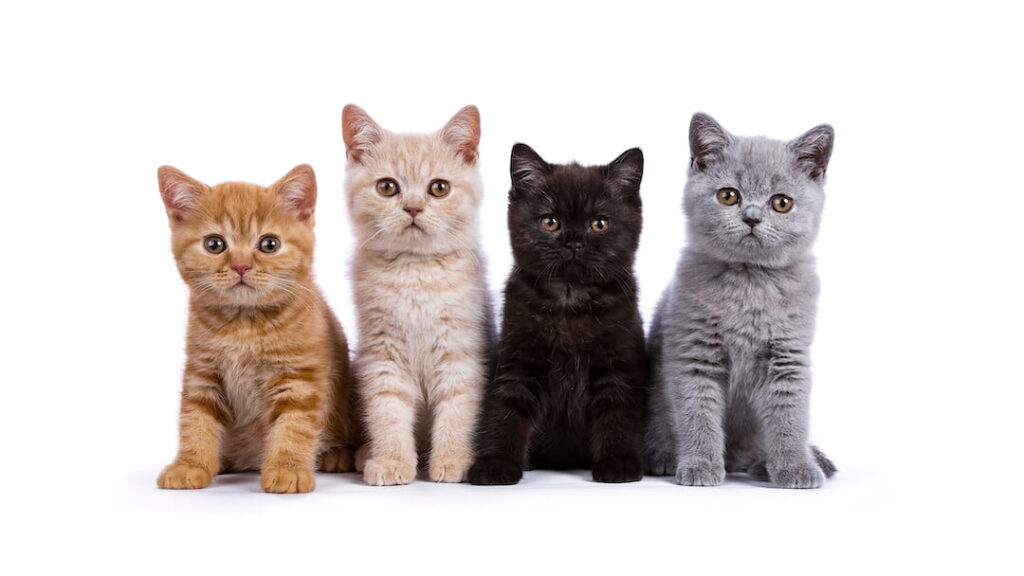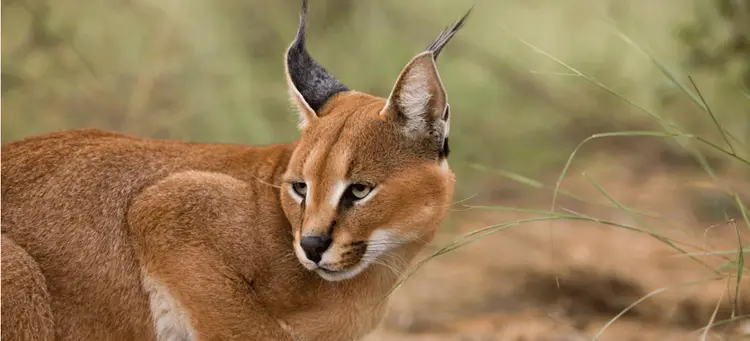
Caracals as Pets
By Bennett Glace
August 31, 2023
A wild Caracal pet cat, known for its striking tufted ears, gives a fierce gaze.
Table of Contents
- What Is a Caracal?
- Keeping Caracals as Pets
- Understanding Exotic Cat Ownership
Cat enthusiasts often choose from familiar breeds like Persians or Maine Coons. But what about more exotic options? While big cats like lions and tigers are usually found in zoos, some smaller wildcats, such as caracals, can be kept as pets in certain states. In places like Arizona, Arkansas, Delaware, Florida, Indiana, Maine, Mississippi, Missouri, Montana, North Dakota, Oklahoma, Pennsylvania, Texas, and South Dakota, it’s legal for licensed individuals to own caracals pets.
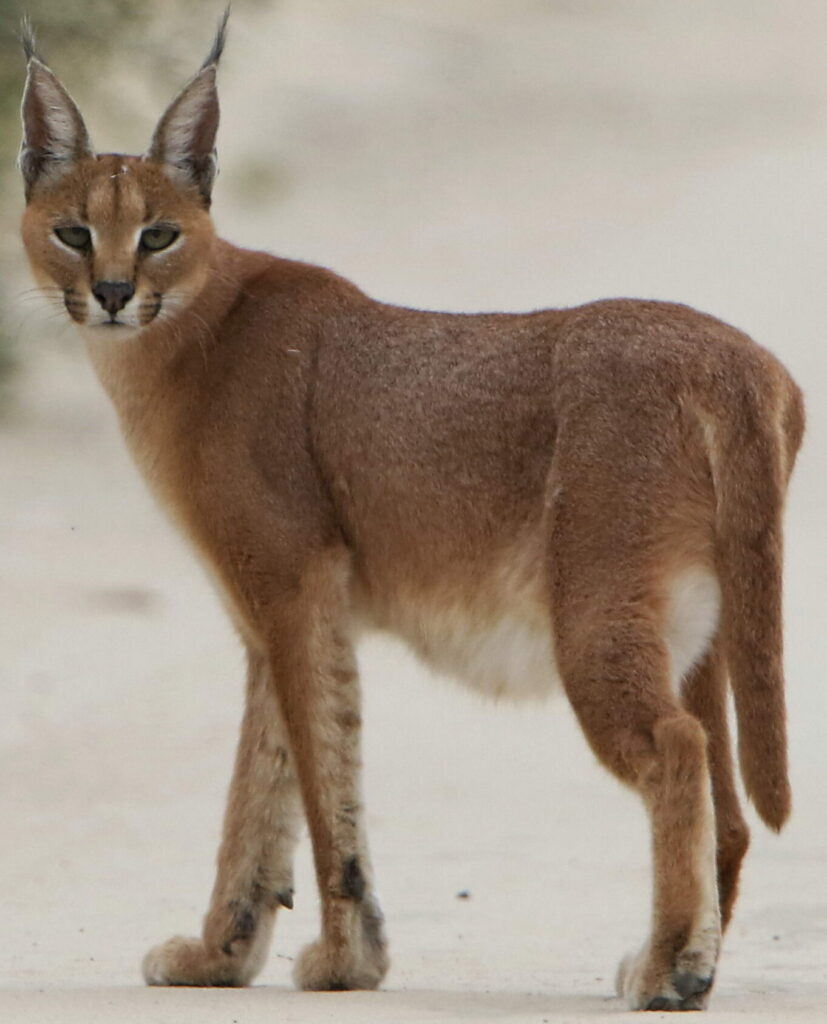
What Is a Caracal?
The caracal pet is a tawny-colored, mid-sized wildcat found across arid regions of the Middle East, Africa, and India. Often called the Persian lynx, it is most easily recognized by its distinctive tufted black ears. These ears can swivel independently to detect faint sounds, aiding in its hunting prowess. Caracals also have fur-cushioned paws for silent movement and powerful legs that enable them to leap up to ten feet high, making them highly effective hunters.
Typically, caracals reach about 3.5 feet in length and weigh between 25 to 40 pounds. They are solitary animals, spending much of their lives alone and leaving their mothers around ten months old. In the wild, they have an average lifespan of around 12 years.
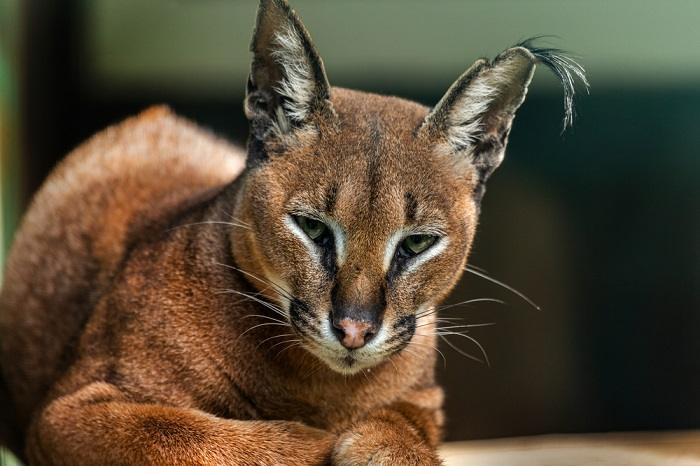
Keeping Caracals as Pets
Owning a caracal pet is quite different from having a typical kitten. Exotic pets, in general, come with a hefty price tag. For example, when Justin Bieber bought two Savannah cats—a blend of domestic cats and servals—in 2019, the cost was a staggering $35,000. For those considering exotic cats, prices can range from $1,500 to $20,000.
The ongoing costs of caring for a caracal are substantial. Like domestic cats, caracals require routine veterinary care and face potential unexpected expenses. However, their needs are more demanding. A full-grown caracal can consume up to three pounds of meat daily and often needs more protein than standard cat foods provide. This necessitates working with a veterinarian to create a tailored nutrition plan.
Moreover, caracals retain their wild instincts even in a home environment. Their independent and energetic nature means they often socialize on their own terms, and their play can be quite rough. This can lead to scratched furniture and damaged clothing, adding to the cost of maintaining an exotic pet.
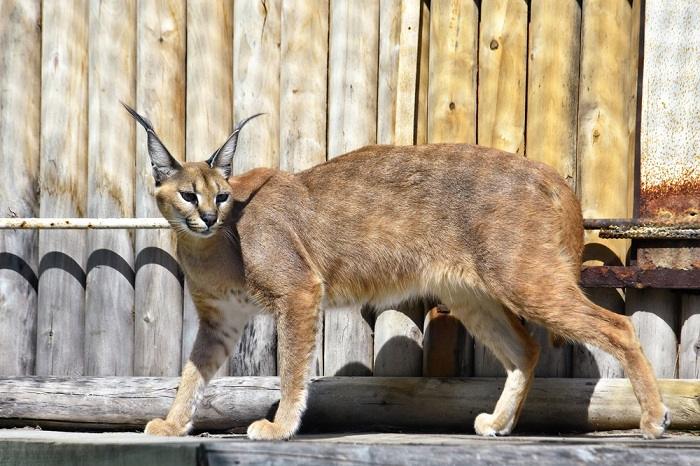
Understanding Exotic Cat Ownership
Laws regarding exotic Caracal Pet cat ownership differ widely, reflecting ongoing debate about the advisability and ethics of keeping animals like caracals in domestic settings. These wildcats are generally not recommended for households with children or other pets due to their unique and often unpredictable nature.
Before committing to an exotic pet, it’s essential to check local regulations and assess whether your lifestyle can accommodate the demands of such a labor-intensive animal. If you decide to go ahead with a caracal or another exotic cat, adhering to responsible pet care practices is even more critical. This includes working closely with a veterinarian to ensure the animal’s health and well-being.
Do Caracals Make Good Pets?
You might have come across stories about people breeding caracals and selling their kittens or seen rescued caracals on social media. While Caracal Pet it might seem thrilling to have one of these striking animals as a pet, wildlife experts strongly advise against it for several important reasons.
Caracals, even those bred specifically to be pets, remain wild animals with unpredictable behaviors. Their natural instincts can lead to aggressive actions, which can be dangerous for humans, especially children, as well as other pets. With their strong build, powerful jaws, and sharp claws, even a single aggressive episode can cause serious harm.
Additionally, caracals are highly territorial and can be quite messy. Many are kept in specialized outdoor enclosures to prevent damage from their natural behaviors, such as scratching and spraying urine. This setup also helps ensure the safety of people and other animals.
Finding a veterinarian willing to care for a caracal can be challenging. Caracals need regular preventive care, vaccines, and treatment for injuries or illnesses, which often requires locating a specialist in exotic animals. This can be costly and might require significant travel.
Feeding a caracal is another hurdle. As carnivores, they need a specialized diet, potentially including raw meat. In the wild, they eat a variety of prey, including birds, rodents, and even small antelopes.
Ultimately, caracals are best suited to their natural habitats. Unlike domestic cats, which have adapted to living alongside humans, caracals are not meant to live in a human environment. They cannot fully express their natural behaviors in a home setting, which impacts their well-being.

